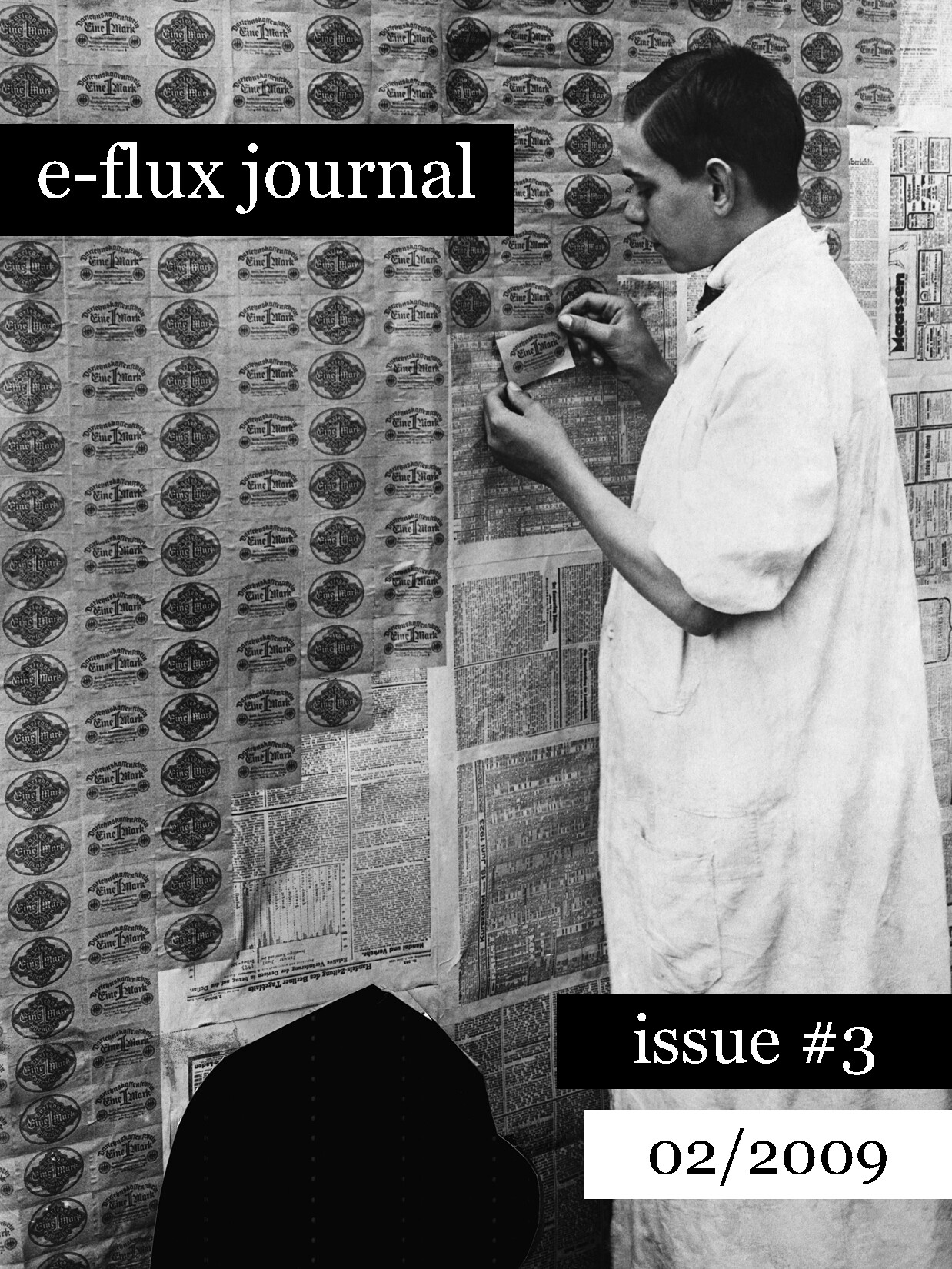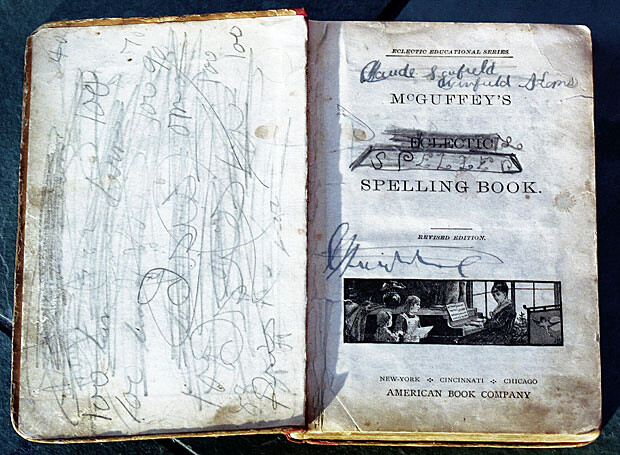You teach a child to read, and he or her will be able to pass a literacy test.
—George W. Bush, in a speech given in Townsend, Tennessee, February 21, 2001
Interestingly, at least in the languages I know, when one talks about alphabetization there is always the mention of reading and writing, in that order. Ideologically speaking, this prioritized order not only reflects the division between production and consumption, but subliminally emphasizes the latter: ignorance is…
Issue #03
February 2009
With:
Julieta Aranda, Brian Kuan Wood, Anton Vidokle, Luis Camnitzer, Liam Gillick, Natascha Sadr Haghighian, Tom Holert, Bilal Khbeiz, Simon Sheikh, and Monika Szewczyk
These days, it is fairly clear that we consider art to be a trans-disciplinary field in a position to nurture other disciplines, and to be nurtured by these other disciplines in turn. As promising as this might sound, the terms for this exchange become significant, because it remains unclear what exactly we presume art to offer to the world. When hard pressed, we usually prefer not to prequalify the nature of artistic contribution at all, because in fact artists reserve the right to offer…
View List
View Grid
8 Essays
February 2009
→ Continued from issue #2: Maybe it would be better if we worked in groups of three? Part 1 of 2: The Discursive
There is a doorman working at the entrance who is very good at recognizing people. He is also a judge of character based on facial appearance. However, he is blindfolded. The doorman is accompanied by a colleague who is unable to move. Tied to a chair. Incapable of physical activity. At the right time, when the music has finally stopped, people stream out past…
For my Night School seminar that took place at the New Museum in New York in October 2008, I invited Avery Gordon and Tom Keenan to have conversations in Whole Foods, a huge organic supermarket around the corner from the New Museum. The original plan had been to hold the entire seminar there instead of in the museum’s auditorium, but this plan failed when the supermarket refused to grant us permission. Instead, we held our conversations there and documented them using wireless microphones…
Lately, the concept of “knowledge production” has drawn new attention and prompted strong criticism within art discourse. One reason for the current conflictual status of this concept is the way it can be linked to the ideologies and practices of neoliberal educational policies. In an open letter entitled “To the Knowledge Producers,” a student from the Academy of Fine Arts Vienna has eloquently criticized the way education and knowledge are being “commodified, industrialized, economized and…
In 2006, the Lebanese novelist Hassan Daoud reflected on how some friends, visiting Lebanon in the aftermath of the July war, insisted on inspecting the destruction in Beirut’s southern suburb. 1 He declared that he was not capable of accompanying them on these visits—he had experienced the destruction firsthand and saw no need to inspect the damage himself. Such inspection would only complicate an already troubled existence.
In all probability, Daoud was not expressing sentiments…
Few essays have garnered as much immediate response as Brian O’Doherty’s “ Inside the White Cube ,” originally published as a series of three articles in Artforum in 1976, and subsequently collected in a book of the same name. 1 According to myth, the issues of Artforum containing O’Doherty’s texts sold out very quickly, and as he himself has remarked, many artists he spoke to at the time told him that they themselves had been thinking about writing something similar. This is to say…
Much has been said of late about “the conversational” or “the discursive” in and around the field of contemporary art. 1 And yet we seem reluctant to talk about an art of conversation in the same breath. Maybe it is the all-too-powdery whiff of seventeenth-century aristocratic ladies and gentlemen, fanning themselves amidst idle chatter, whose connections to our own aspirations we would rather sweep under the shaggy carpet? 2 Or perhaps it is because we are desperately hoping to talk…




